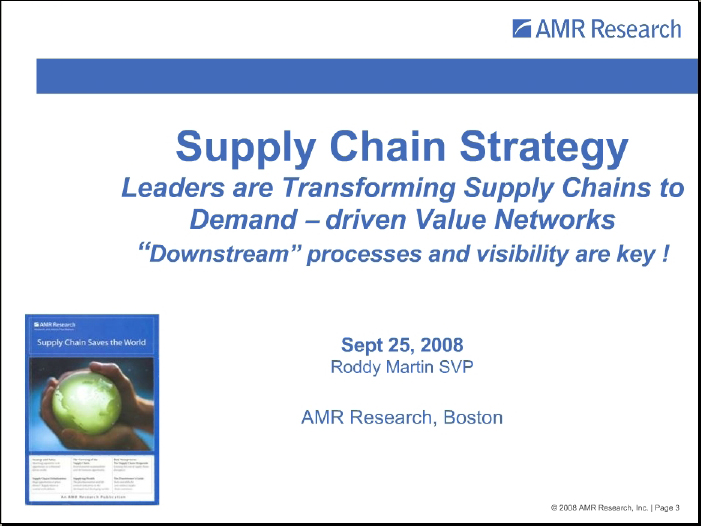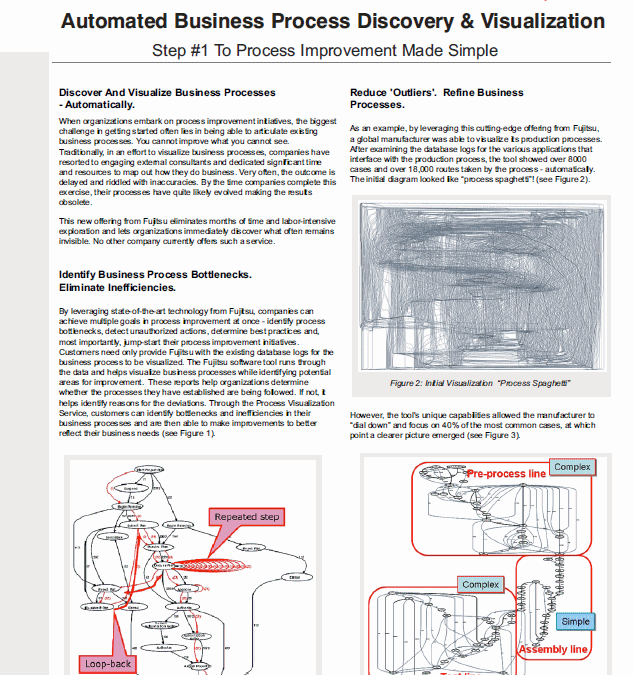Home / Resources
Resources
Discover a Wealth of BPM Knowledge and Expertise at BPMInstitute.org!

Top Down Business Execution
A plan is not enough
A few months back, my wife mentioned that we had not had a family vacation in years, and it’d be good if I can plan something that the whole family would enjoy.
I got to work on it immediately. There are so many wonderful places to visit; so I took a systematic approach to cull down the list to a manageable few destinations. My research included talking to friends, browsing the web, and reading travel books. Finally, I hand the answer – Rome it’ll be. I have always been fascinated with ancient civilizations.

Lowering Administrative Costs with Oracle BPM
Hear first how the Supreme Court of Louisiana, the state’s highest court, needed to provide secure and standardized workflow and collaboration services for a community of justices and staff, and its external legal community. They wanted a central, online collaborative BPM system to process legal issues and address pressing challenges after Hurricane Katrina as well as increase justice and staff productivity.
Next get a sneak peek at the next release of the product that the Supreme Court of Louisiana used – Oracle BPM, version 10gR3!

SOA’s Transformation of Configuration, Change and Compliance Management
At the moment most of the SOA software configuration management discussion is dominated by service version control issues and the use of service registries to capture change management data.

Why a Business Analyst Must Understand Business Process and Procedures
The first time I heard the phrase business process reengineering was over ten years ago, and I was a system analyst working with a utility industry software vendor. A California locality had purchased our product to address Y2K issues, and automate all the city services. When I arrived at my client, I found that some of the city services were automated, some were not, and I had to determine a way to fit the manual approach into the system.
I found myself wearing multiple hats, and using my journalism training, which enabled me to research and identify the right people, determine a method of relating while building trust, and eliciting the necessary information to define the current and eventual future state of the processes and impacts to workflow with the new system.

Discovering & Hiring Collaborative Leaders
Many companies which have begun applying lean or agile practices in their work place are now finding they need to reconsider who they hire to fill the more collaborative and facilitative roles required by those methodologies. Unfortunately, most companies believe they can magically transform their firm into a highly productive and enjoyable place to work by asking traditionally trained managers to simply apply a few new practices like value mapping, iterative development and an intense focus on quality.

Best Practices for Driving Visibility Across the Global Supply Chain
Today’s supply chains are increasingly complex, with global pressures placing additional burdens on speed and efficiency. Since the supply chain is the life blood of your company, you can’t forecast and manage it effectively if you can’t see what’s happening. That’s why true real-time demand and supply visibility is critical to optimizing supply chain performance.

Business Architecture Tackles Complex, Horizontal Business Challenges
Senior management wants to get serious about consolidating and managing customer information. Customer contact and related information is scattered across dozens of business units, each of which updates and manages this information in unique, nontransparent ways. Continuing the current piecemeal approach to customer management, however, creates severe roadblocks to servicing customers more effectively, streamlining operations and competing with other companies in your industry.

Process Architecture: Seven Essentials
Chances are good that your company has embarked on efforts to document processes and procedures at the departmental level, creating a collection of swim lanes and flow charts that might soon reside forgotten on servers and hard drives.

BPM SaaS Is Here – Is It a Storm Cloud For IT?
Some time ago during a discussion on ITtoolbox.com, I theorized about BPMS Cloud as the last, ultimate step, providing the final means to transition to a post-IT era.

SOA Architecture Considerations
An important part of analyzing necessary capabilities for a future Service Oriented Architecture (SOA) and Enterprise Interoperability environment is to envision, explore and lay out the core architectural principles and templates of a holistic service-based organization. By defining a notional landscape of patterns and best practices, a clearer picture of the integration between application architectures and integration architectures can be developed.

SOA Governance for the Organization: Best Practices for Getting Started
SOA governance is crucial to building, managing, and maintaining a successful SOA implementation – indeed, without governance, well-intended SOA pilot projects spiral into chaos when they go operational. We have all seen it before – an organization spends a lot of money developing services, and they prematurely declare success when everything works well in the lab.

Smart (Enough) Systems
Today’s business trends are driving organizations to build systems smart enough to cope with the demands of a more complex world. As a result, organizations must automate and improve far more of the decisions underpinning day-to-day business operations. They must treat these decisions as a corporate asset in the same way they treat their data as one -perhaps even more so. These decisions are too numerous and cumulatively too important to be handled in an ad hoc manner. Decisions (or at least the definition of a good decision) change rapidly and influence your organization’s behavior. A new systematic approach called enterprise decision management is needed.
Download “Enterprise Decision Management” from “Smart Enough Systems” (2007) by thought leaders James Taylor and Neil Raden to learn more.

The Nature of Operational Decisions
In previous articles we introduced Business Decision Management and answered some of the most frequently asked questions about it. Business Decision Management involves the automation and improvement of operational business decisions. This leads us to the topic of this article – what is different about operational decisions and other kinds of decisions?
First, let’s consider the kinds of decisions that organizations must make to succeed.

Business Process Leadership (BPL)
The acronyms associated with BPM seem to grow in quantity year by year while the essence behind them grows at a much, much slower pace. If we cut through all the jargon, we can get to the simple truths. In this article, we’ll discuss one such fundamental truth – business requires both leadership and management to succeed. You can’t overlook or over-value one or the other; they have a symbiotic relation in any business, business function or business process.

Surviving the Business Architecture Center of Excellence
I have had the pleasure of leading several Business Architecture Centers of Excellence (CoE). They have not always been called that, however. Centers of excellence have been around for a long time but with regard to Business Architecture they have only been around for a couple of years.
When we formed those centers of excellence we did not have a blueprint or any kind of reference model. What we had was a need to see the big picture of where the business needed to go. We knew the strategy and we understood the goals and objectives.

Selling SOA to the Business
(Or, Why Don’t They Get What A Service Is?)
In talking to many senior IT executives, whenever the topic of SOA is mentioned they invariable complain of two things. The first is that all the vendors are doing SOA – but all in different ways, making it difficult to mix and match. The second is that getting business buy-in to SOA from business managers is even harder than trying to wrestle their ‘Crackberries’ from them.
The problem is that without business buy-in, SOA cannot deliver its fabled benefits to the organisation – Agility, Growth, Innovation.

BPMS Watch – BPM and Its Enemies
My very first BPMS Watch column, over three years ago, was titled “Without a BPMS, It’s Not Really BPM.” And to a large degree I still believe that, although today I would probably tone it down to something like “without a BPMS, you can’t realize all the benefits of BPM.” That view is certainly less radical now than it was in 2005, as both developers and developer-oriented tool vendors have increasingly embraced the BPM Suite idea.

Automated Business Process Discovery & Visualization
One of the biggest challenges faced by companies embarking on a process improvement and governance initiative today is illuminating the exposure to compliance failure, fraud, and other legal and efficiency issues lying hidden in their operational workflows. Fujitsu’s Automated Business Process Discovery and Visualization Service eliminates months of time and labor-intensive exploration and lets organizations immediately discover what often remains completely invisible. Learn more about this innovative offering from Fujitsu and how can you benefit from it.
The Bioteaming Breakthrough for High Performance Teams
With the emergence and maturing of a vast array of corporate-strength intranets, extranets, portals, and Web 2.0 with its multitude of supporting real-time and asynchronous communications tools, there would appear to be a huge potential for technology to bring real gains to team productivity. This would seem to be particularly true for those teams that are physically distributed or that are highly mobile. Few people would dispute the potential benefits of effective real-time communication tools or of shared and secure workspaces.

Better! Cheaper! Faster!
Have you ever worked on a project where the rules to be automated were very complex? Where the business representatives described the rules differently (but essentially used the same logic)? Where the rule inter-relationships made it seem like the rule logic was circular? Where they were difficult to document in a clear and precise format? Where it seemed like the stakeholders each spoke a different language? Where defining the concrete rules to be automated seemed impossible? Well, you are not alone.













